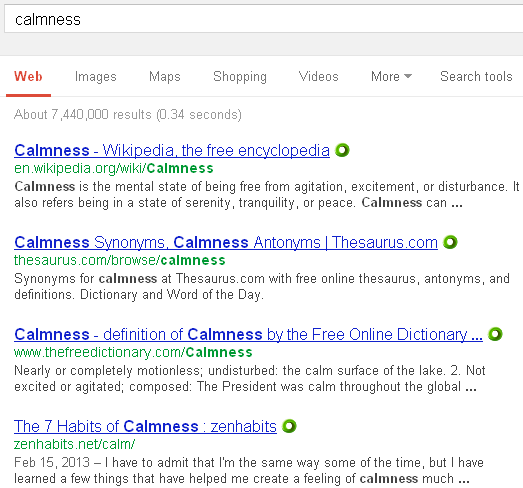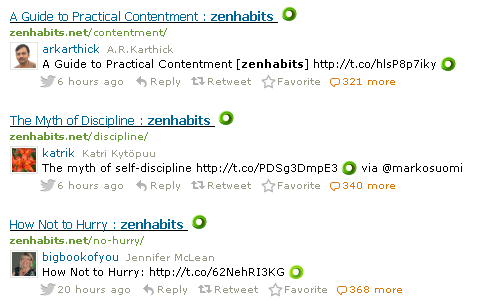Simplicity
 *
*
Simplicity is the ultimate (form of) sophistication – Leonardo da Vinci
When it comes to design or self improvement – two topics I follow in my free time – simplicity is widely accepted as the path to success.
When it comes to blogs, social media or search many people still tend to overlook it.
Just think of the biggest successes in all three areas:
- When Google introduced the clean and simple search box homepage instead of the cluttered portals of the 20th century they had an amazing success.Of course many aspects fueled it, the better results, the young sympathetic team, the playful corporate culture etc. Nonetheless the simplicity in web design or UX as we call it today played a major role.
- On social media one of the most successful sites, Twitter has been made what it is today by its super simple approach to publishing.The limit of characters and lack of features was exactly why everybody started using it.
- You may call it a social network but I consider it a blog platform: Tumblr made blogging simple again and took over myriads of users from WordPress and Blogger.Additionally they got high numbers of users from Facebook and other social sites. These people were not even into blogging.
OK, I hear you saying “yes, but these are huge corporations, I’m just an average business person”.
How does simplicity actually work?
How does simplicity work on blogs, social media & search to make real life business owners without millions in venture capital succeed?
I could offer you examples of people that have succeed by simplifying. One is enough though.
Zen Habits is probably the best example of success through simplicity.
The author has a hugely popular blog with a “million+” readers. Every article of his gets re/tweeted hundreds of times at least:
While he treats SEO with disdain and isn’t optimizing for any major keyphrases like
- [self help]
- [personal development]
- [life hacks]
he nonetheless ranks on top for most of his current articles, e.g, he wrote one on calmness two months ago and is #4 on Google for the term outranked only by Wikipedia and two dictionaries:

I read a lot of other self improvement blogs by authors who are even more sympathetic but none of them has a similarly big audience.
Then what do the other self improvement bloggers wrong?
- They have shiny interfaces with lots of colors and images.
- They push their latest ebooks on their blogs.
- They have very long and sensationalist post headlines.
- They have lots of guest posters from other blogs.
- They display lots of social media buttons everywhere.
Now you wonder: are these things really wrong? Aren’t everybody and their aunt suggesting them? Haven’t I suggested myself to do some of these?
Well, apparently adding more and more, be it features or items or authors or whatever isn’t always the best solution.
The people of our age are bombarded non-stop with messages, things and offers.
Do not force even more down their throats. Try it with less.
- fewer features
- less clutter
- shorter headlines
without that many “long tail” keywords. I have even banned Google here on my blog to be able to return to a less Google-begging writing style.
I don’t have visible social media buttons. I don’t ask you to buy my ebook. That’s why my readers are returning. Some of them are with me for 6 years now.
* “What is simplicity” poster by Paweł Kadysz.


Great post.
I completely agree, simplicity can go a long way in the design of websites, blogs, apps etc.
Lots of sites aim to do too much, give too much, cover too much and sometimes it is better to strip down to what you see as your main aim for your content/website.
It is difficult though in this online world of information overload.
Thank you for the feedback Tom. Yeah, exactly, the actual problem, simplicity is not simple, it’s difficult. Reducing things is harder than adding more. That’s why the demand for simple solutions is growing.
simplicity is the best..